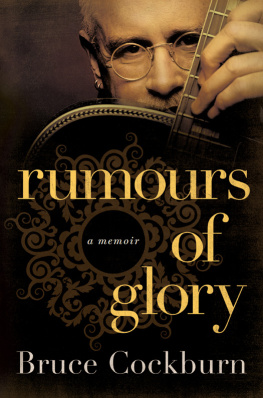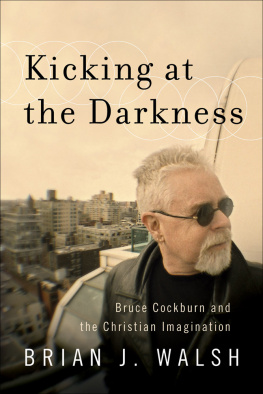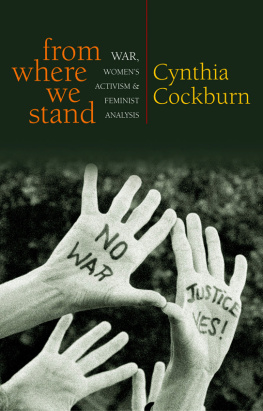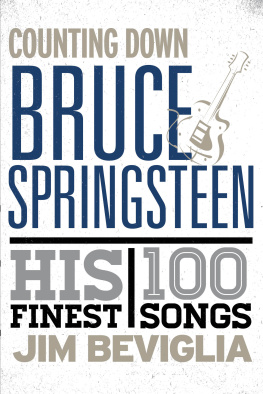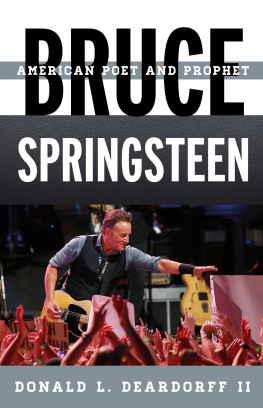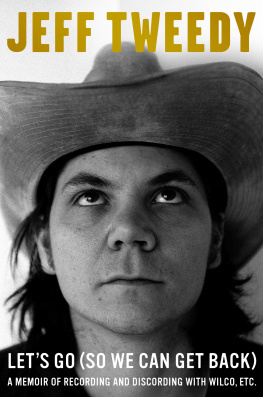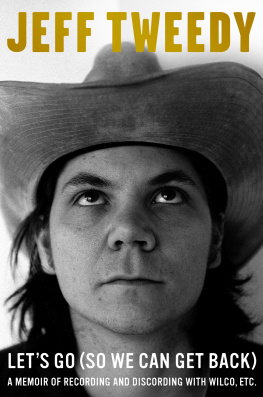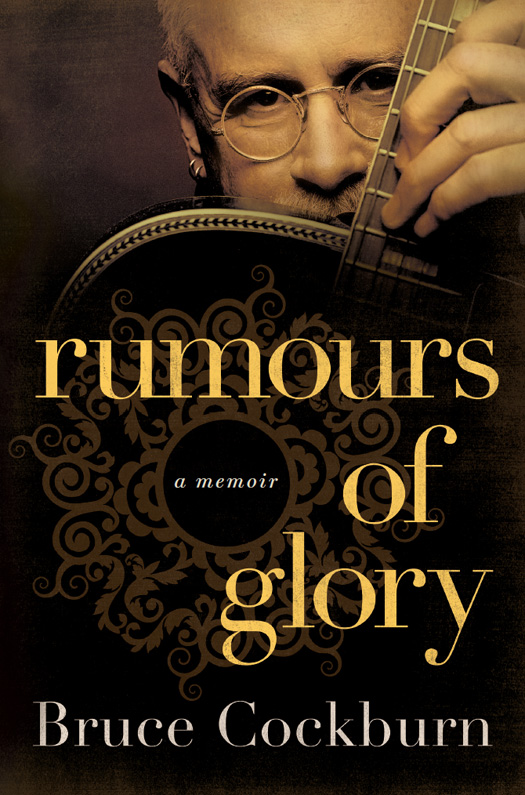To everyone who, through lo these many years,
has done me the honour of paying attention.
This book would not exist were it not for Greg King,
who fed me back my recollections with insight and
a sense of order that allowed me to take them and run.
He was not a ghost writer but a close cocreator of
the work you are about to read.
A word of heartfelt thanks is hereby shouted out to the following:
Roger Freet, editor, whose idea this was, and his extremely helpful staff: Hilary Lawson, Natalie Blachere, and Sherri Schultz
Mark Tauber, publisher, for his support of the idea
Bernie Finkelstein
Linda Panetta
The Cockburn Project and Bobbi Wisby
Gavins Woodpile and Daniel Keebler
The Archives of McMaster University and Rick Stapleton
MJ and Iona, for love and for putting up with my semi-absence throughout the writing process
CONTENTS
W hen I was born on 27 May, 1945, my father, Doug Cockburn, was not around. That was not by choice. The Canadian army had put him through medical school during World War II, and Dad was sent to Europe just before the end of hostilities. While he was stationed in England waiting to be transferred to the European mainland, Germany surrendered. Dad then became part of the occupying force. I was about a year and a half old when he saw me for the first time. I suspect I was not happy to have to share the attention of my mother, Lois, with this guy I had never set eyes on. I do remember, though, a fair amount of jollity in those early years. (The arrival of the first of my two brothers when I was five was the occasion for a better-remembered resentment.)
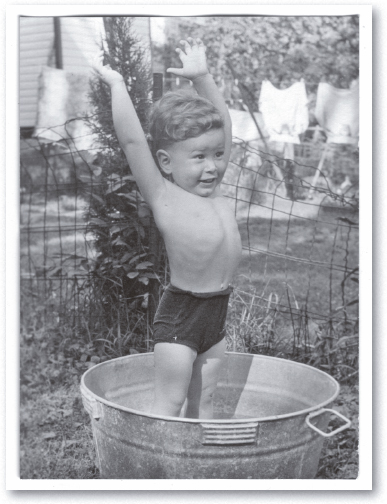
Union Street, Kingston, Ontario, 1948
On my fathers return to Canada, we moved from my maternal grandparents place in Ottawa to Kingston, Ontario. Dad went back to school to continue his studies, specializing in radiology. We had a ground-floor apartment on Union Street, where we lived for what I suppose was the next couple of years. I have a clear picture of my dad hauling me around in a sleigh, bundled up in a brown snowsuit and swaddled in a blanket, over frozen sidewalks. Hed be jogging along in his Queens University jacket with the leather sleeves, taking the corners too fast. The sleigh would tip over and the bundle of me would roll out into the road. In my memory this happened more than once. Im told I was too young to really remember thisthat its a recollection made from having heard the story repeated. Maybe.
I guess as the firstborn, I inspired my father to ensure that I was exposed to the finest of what Western culture could offer. He subscribed to some sort of record-of-the-month thing as well as the Book-of-the-Month Club. Twelve times a year, an album would arrive in the mail. Originally, it was actually an albuma book like a photo album whose pages were sleeves for 78-RPM Bakelite discs. These were played on the hi-fi (we didnt have a windup Victrola, as I recall, though relatives did, and I was familiar with them).
Aside: When my mothers brother Gerald was little, he confused the words for Victrola and toilet. This resulted in her side of the family referring to the latter fixture as the troley till I was well into my teens.
In the evenings my mom and dad and I would sit in the living room and listen to this music. Mostly it was performances of great classics by somewhat second-rate orchestras. Let it be said that my father had a good ear for music and a keen sense of pitch. It always bothered him that the brass band of the Governor Generals Foot Guards, which had a weekly radio show, tended to play out of tune.
There we would sit, music filling the room. The vocal pieces, sung in formal classical style, were a total turnoff to me, especially the high female voices laden with vibrato. The men, too, though. What I remember being particularly taken with was Manuel de Fallas Ritual Fire Dance. When that piece played I could see human figures leaping in silhouette, circling the flames of a huge bonfire. Had I even seen a bonfire at the age of two or three? Maybe, maybe not, but the association of fire and ritual and human action slipped in from who knows where. That piece of music fired me up every time I heard it.
Other memories from Kingston in the 1940s: running under the front porchrefusing to go in for either dinner or bed, I forget which. My dad couldnt get me to come out. I only screamed No! when he suggested, then asked, then ordered me into the house. It took a gentle intervention by an older man who lived next door to coax me out of my hiding place. Even with my fear of cobwebs, I felt that squatting in the dirthaving crawled through an opening in the latticework on one side of the veranda, under sticky-soft stalactites of spider silkwas better than going inside, admitting that the day was over. I always hated the ending of the day. I felt like not enough had happened. Still do.
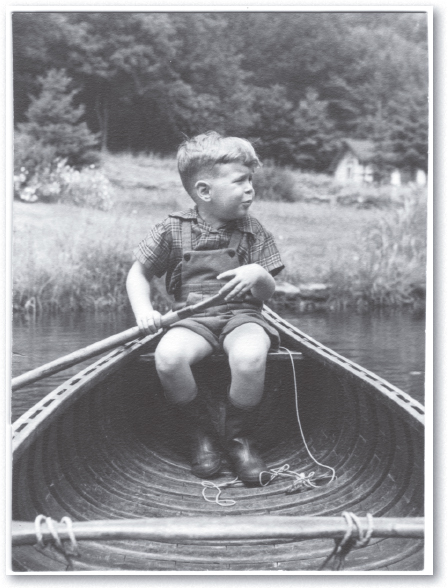
The pond at Grandpas farm
One morning I deliberately locked my mother out of the house. I remember standing in the hall in my short pants and beige knitted cardigan with images of cowboys on it. Mom must have ducked out briefly, for what reason I dont know, and I thought it would be a good joke to latch the door behind her. When she demanded that I let her in, I refused. I thought this was the funniest situation Id ever seen, and I laughed and laughedand kept laughing till I saw the expression on her face as she climbed in the little bathroom window, over the back of the troley . She was hopping mad. My amusement instantly turned to gut-melting fear. I guess I got spanked. Cant really recall. Later I learned that she had been six months pregnant. That pregnancy ended in miscarriage. I was assured that climbing in the window was not a factor.
When Dads schooling was done with, we moved back to Ottawa. He got a gig at what was then the Ottawa Civic hospital. Eventually he became head of diagnostic X-ray there. Now and then as a schoolboy I would go with him to work, or meet him there for a ride home after my trumpet lessons. He would show me the X-rays he was reading, and I could sit and try to follow along as he dictated his findings into the then state-of-the-art Dictaphone, verbally putting in commas, periods, and paragraph indentations.
To a little kid in Ottawa in the late forties, diversity meant there was a French boy who lived down the block. That, and once on Bank Street with my mother I saw a black man. I pointed and stared, and was instantly shushed and admonished against commenting on peoples appearance (especially if they were within earshot). This lesson was repeated another day when we encountered an old man with a gin blossom nose, which caused me to point and laugh and cry out, Look at his nose ! Major disapproval.
Mostly everyone was the same. There were Protestants, Catholics, and Jews, but nobody ever mentioned that. Everybody was just people. I played with Billy from across the street and Donnie M. There was a bad kid named Norman who was maybe a year older than my playmates and I. My parents chased him away whenever they saw him around. Gilles, the francophone kid, was a bit older and quite polite.
What constituted a bad kid? We lived on the upper floor of a duplex. Downstairs were people called the Meldrums. Next door to us lay a vacant lot overgrown with shrubs and one or two big trees. For us it was a jungle, or the northern bush. Many games unfolded there: war games, cowboys and Indians, Tarzan. Guns were crooked sticks or cap-firing toys. My friend John Whynot, the engineer who has recorded many of my albums, once voiced the observation that boys are all about projectiles. We certainly were, though we were cautioned never to throw anything at each other that could inflict harm. Now and then I could play with my mothers BB gun, but Id better not shoot anyone in the eye.

